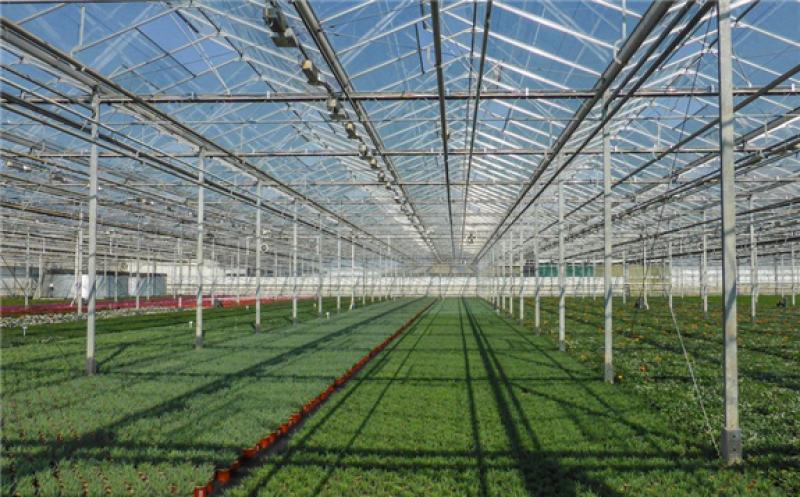About 80% of the energy consumption in the municipality of Westland in the Netherlands comes from greenhouse horticulture companies.

Horticulture is a major user, especially when it comes to natural gas. This means that the sector is an essential partner for the energy transition within the municipality. “We opt for cooperation with entrepreneurs and a bottom-up approach,” says Jeroen Straver, Policy Officer Energy, about the approach of the municipality of Westland.
It should come as no surprise that greenhouse horticulture plays an important role in the climate ambitions of the municipality of Westland. The greenhouse horticulture sector therefore has a prominent place in the 2019 Westland Energy Agreement. In addition, sustainability in horticulture will also be discussed in the Heat Transition Vision, which the municipality – like other municipalities – must have ready by the end of next year.
“We have to take enormous steps,” says Jeroen Straver, Energy Policy Officer at the municipality of Westland. For example, Westland horticultural companies use about 1 billion cubic meters of gas every year. An amount that, according to the sector itself, must eventually reach 0. The greenhouse horticulture sector wants (under certain conditions) to grow climate neutral as early as 2040. “The task is mega.”
But that task is also feasible. For example, geothermal energy and (residual) heat from the port may already ensure that horticultural entrepreneurs achieve 60% -70% of the CO2 reduction targets in 2030. But those alternative sources are not just there. How do municipalities and horticulture work together to achieve these goals?
The role of the municipality
“We opt for a bottom-up approach,” Jeroen Straver summarizes the approach of the municipality of Westland. Entrepreneurs take the initiative and the municipality supports them in this. Take the example of the former Westland Agenda. The Municipality of Westland has supported horticultural entrepreneurs who wanted to realize a geothermal project with subsidies from the Westland Agenda. In addition, the municipality has involved the companies HVC and Capturam with Trias Westland and the municipality has guaranteed the financing of this project. This model / project has been so successful that it is now being applied to four new geothermal initiatives in Westland. A good example of how collaboration pays off. Westland now has six realized geothermal doublets. A number that must grow to approximately fifteen.
In addition to subsidies and (incidental) guarantees, the municipality facilitates spatial integration and permit applications. The municipality is also regularly active in the lobby, for example in supporting entrepreneurs with ODE and CO2 provision: the municipality works closely with other stakeholders, such as Greenhouse Horticulture in the Netherlands. Furthermore, the municipality is always looking for useful subsidies. The European subsidies with the proposed Green Deal program seem particularly interesting.
Local differences
In order to be able to perform tasks properly, the municipality has a lot of consultation with stakeholders. The municipality also wants to enter into discussions with greenhouse horticultural entrepreneurs about questions such as: what is your step-by-step plan for doing business CO2-neutral? Based on this, we can determine our commitment. The municipality wants to do this together with parties such as Greenhouse Horticulture Netherlands and Greenport West Holland. It is also the municipality’s preference to involve knowledge parties and financial institutions.
The Westland municipality keeps an eye on the local differences. “For example, there are relatively many flower growers in the Westland and there is a lot of exposure.” But there are also relatively many cold crops and open ground cultivation in Westland. All this means that the municipality of Westland has different interests from the specific area characteristics than, for example, the municipality of Wieringermeer.
Potential
There is a big difference for the municipality between making the heat supply low in CO2 and the electricity supply. In heat, geothermal energy and residual heat significantly reduce the dependence on natural gas. A condition for this is that the Westland Heat System is to be realized next to new local heat sources and that a branch line from the port of Rotterdam to The Hague be constructed.
Then electricity: Straver expects the use of electricity to continue to increase. This is due to the development of lighting (LED) but also the increasing use of heat pumps in greenhouse horticulture. On the one hand, more sustainable electricity can be produced, for example through more solar panels on company roofs. Straver: “There is certainly still potential. The point is that the business case is still unfavorable and the capital to be generated is relatively low. ” At the same time, it is important that the greenhouse horticulture cluster save, for example with new cultivation techniques (such as Het Nieuwe Telen) and via the Greenhouse as Energy Source program.
Since reconstruction is also expected to take place relatively often in the Westland, this also offers opportunities for sustainability. “It is an excellent opportunity to apply energy-efficient techniques in new construction.” Straver also sees many opportunities for using data in cultivation. He sees that the use of data is taking off. It is important that the infrastructure is in order for both CO2-free heat and electricity.
Reinforce each
Straver: “The economy in our municipality is very dependent on horticulture. Energy is and remains important for greenhouse horticulture. From a social point of view, it is important that the cluster is made sustainable. At the same time, you see that the interests of greenhouse horticulture and residents can be opposite. For example, residents of the municipality do not want windmills while horticultural companies want to. ”
Straver, on the other hand, also sees that greenhouse horticulture and the built environment (homes and businesses) can reinforce each other. “The built environment can thus strengthen the business case of a heat network. And that’s the beauty of the Westland. ”